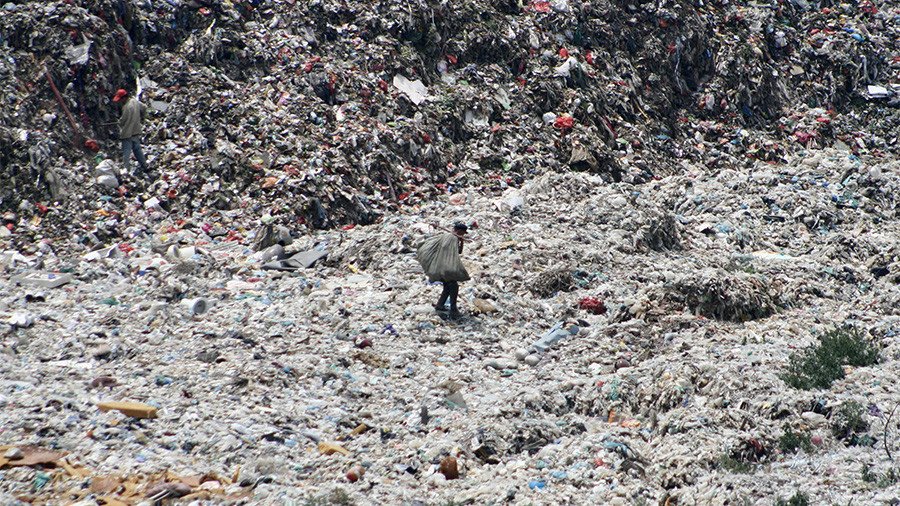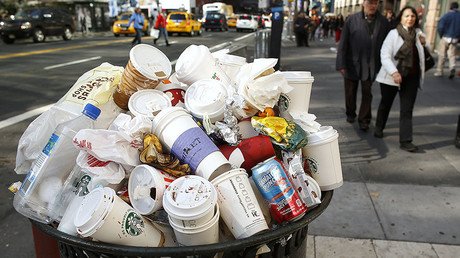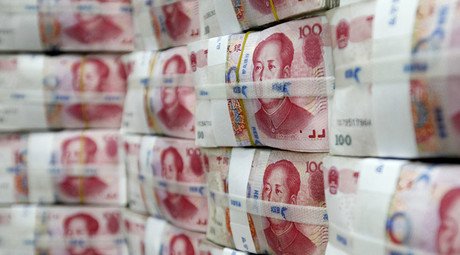China no longer wants the world’s trash

China, the world’s largest importer of waste, has extended the ban on imports of unsorted paper, some plastics, and dozens of other types of recyclable materials.
The blacklist, containing 24 varieties of solid waste, was introduced by the Chinese government in 2017. Beijing said at the time that it no longer wanted to take in other countries’ garbage, so it could focus on its own pollution problems.
It’s now adding 32 more types of waste to the blacklist, such as steel waste, used auto parts, and old ships.
“The new restrictions, just like the old restrictions, are poorly considered measures that will worsen the global environment and China’s competitiveness,” Adam Minter, author of ‘Junkyard Planet: Travels in the Billion Dollar Trash Trade,’ told CNN Money.
According to Minter, the measures create a new headache for countries that depend on China to recycle their waste. They’re still struggling to adjust to the ban announced last year and will need years to expand their own facilities, he said.
The move has already thrown the global recycling industry into turmoil, as waste piles up in developed countries, with nowhere to send it.
Earlier this week, a city in the Australian state of Queensland said it would start burying its mounting stockpiles of recyclable waste in a landfill.
The US Institute of Scrap Recycling Industries said the measures announced this week will impact about $400 million in scrap exports from the United States to China.
“We remain concerned about the effect these policies have on the global supply chain of environmentally-friendly, energy-saving scrap commodities,” said the institute’s president, Robin Wiener.
Rubbish paradise? #Bali garbage problem so bad might cause cancer – expert https://t.co/22hTwe3ZXKpic.twitter.com/k7TfgVakro
— RT (@RT_com) December 28, 2017
The measures could cut Chinese manufacturers off from a cheap source of metals like nickel, according to Minter. “That move will raise manufacturing costs in China and will be passed along to consumers.”
China has been importing billions of dollars of foreign garbage every year, so the companies relying on that trade will have to adapt to the new rules.
For more stories on economy & finance visit RT's business section















